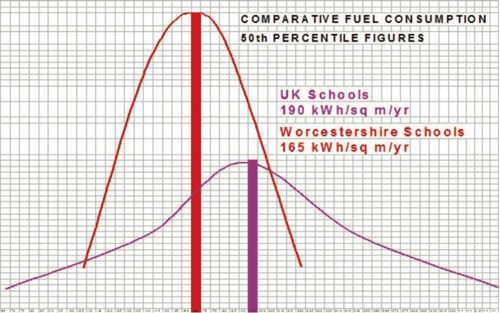Take control of your building controls

Why do schools in Worcestershire use at least 15% less energy than the national average — and save £330 000 a year in gas and oil costs into the bargain? Ian Ellis has the answers.
Regular readers of this column will know just how effective building controls can be when it comes to reducing energy use in buildings. Figures are now widely available that show how much more energy efficient buildings are when controls and building-management systems (BMS) are applied and used. Research has been conducted across Europe and the UK in support of legislation such as the European Energy Efficiency of Buildings Directive and also by our own Carbon Trust to show the importance of using controls in buildings.
One of the major advantages of building controls is that they now come in a wide range of sizes and capabilities. Consultants and installers can specify as complex or as simple a system as the building and budget demand. Retrofitting controls into existing buildings is also now made easier with open systems such as BACnet, LonWorks and KNX, along with wireless technology that makes fitting faster and cheaper.
But there is an important point to bear in mind with building controls; they are not a fit-and-forget solution. Building controls and BMSs should be regarded in the same way as software for an IT system. It needs to be used correctly for an organisation to see the full benefits.
This doesn't mean that controls need to be operated only by experts; far from it. Instead, they need to be designed, installed and handed over so that building users and others with responsibility for the building operation, such as facilities managers, can fully understand what their role is and how to use the controls.
The BCIA (Building Controls Industry Association) believes that controls should be used to measure, monitor and manage energy in buildings. Users should bear in mind, however, that this is not a one-way process but a cyclical method for tracking energy use and responding to it. Energy consumption should be monitored, and then evaluated and assessed. Where is energy being used? Do any properties in a portfolio stand out as high energy users, and why? When are peak-usage times, and do they always coincide with times when the building is occupied?
The process of energy management starts with a plan to optimise energy use. It is important to ask where can energy be saved quickly. One of the most common problems in buildings is that heating and cooling are running at weekends when they are not necessary. Lighting a building at night may also be an unnecessary use of energy. Action can be taken to address these issues.
The important point is to keep monitoring energy use. This will show how well energy-optimisation plans are working and measure exactly how much energy and money are being saved as a result.
As an example of the benefits of taking an active approach to using building controls, Worcestershire County Council (WCC) stands out in terms of improved building energy performance. After a comprehensive review of its building controls strategy in over 250 schools, WCC now operates its own BEMS bureau with just two members of staff ensuring constant monitoring and management of the energy use in these schools. The results in terms of energy and financial savings speak for themselves.

Worcestershire County Council, which was awarded Beacon Authority status in 2008-9 for its work on tackling climate change, regularly achieves average C-rated Display Energy Certificates for its schools and public buildings. Data from other similar councils suggests that the average across the UK is nearer to a D-rating.
Phil Harris, chief engineer of property services for WCC, says, ‘Coupled with a proactive approach to energy conservation and carbon management across the Council, Worcestershire believes that building controls contribute significantly to this improved performance.’
The consumption of heating fuel in Worcestershire schools is at least 15% lower than the national average, according to Government figures, and it is far more accurately controlled. This represents a saving of £330 000 per year in gas and oil costs. In addition, WCC also suffers far fewer education days lost to heating breakdowns compared to other local authorities.
Phil Harris adds that there are other benefits to this use of controls: ‘Unauthorised operation raises a remote alarm in our BEMS bureau — for example, if a contractor forgets to switch a pump isolator back on after maintenance, or a head teacher over-rides time control for out-of-hours use. It also enables us to ensure that proper commissioning of new systems takes place.’
There are also benefits beyond energy saving. These include better comfort levels for occupants, extended life of other building-services equipment such as boilers and air-conditioning plant because it is not operating when it is not needed, and increased reliability of those systems since constant monitoring will help to identify potential failures before they happen.
Continuous measuring, monitoring and managing also means that your business also has a much better idea of how and where energy is being used in the organisation. Whether or not your energy consumption is high enough to oblige you to take part in the CRC Energy Efficiency Scheme should not matter; knowing that you can save operational costs in the long-term is enough of an incentive for any business.
Ian Ellis is president of the Building Controls Industry Association.







